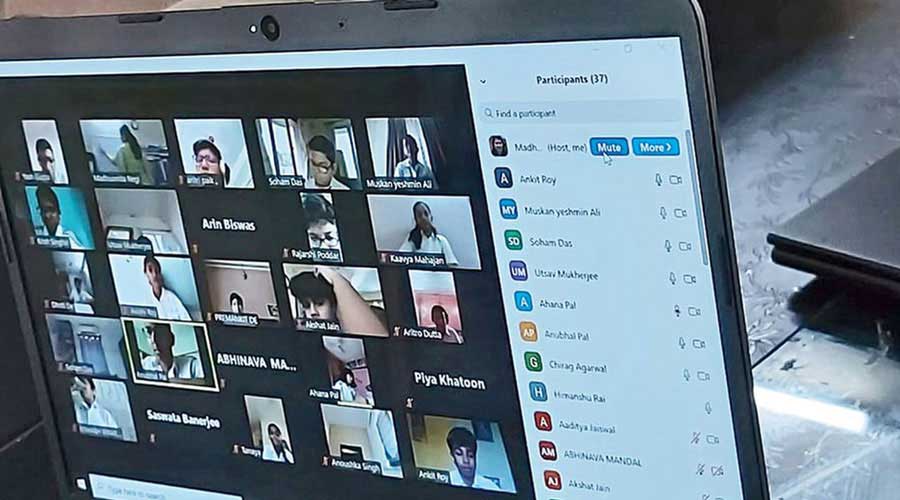The Covid-19 pandemic has changed the way some schools used to prepare report cards. Digital literacy and how well a student is responding to online classes have gained prominence in report cards, especially in junior sections.
Schools are now pointing out in report cards whether a student can mute or unmute the device being used for online classes, their level of ability to edit video, whether they are keeping their videos switched off or sending their questions through the chat box.
In some schools teachers have redesigned report cards to match with the current times.
Teachers have realised that the usual parameters are no longer as relevant as they used to be during the pre-Covid times.
“Certain parameters in the report cards have been changed. We are commenting about the digital literacy of the child which includes remarks like how well the child has been able to record and edit videos or whether he/she can make short videos. These were things we never thought of in the pre-pandemic times,” said Nupur Ghosh, vice-principal of Mahadevi Birla World Academy.
Social skills of children was an important parameter in the pre-Covid times, which now has to be left blank.
“In schools, teachers observe children during free sessions, assembly and even during lunch break to gauge their social skills. Now, there’s nothing much to do about it, Ghosh said.
Some sections that have not been changed include how helpful a student is towards others, but the mode of assessment had to be changed to match the present scenario.
“Some children are helping their peers understand the technology of an online class.
Recently the digital platform that we were using was updated, some of the students even guided the teachers to get hold of the software,” said a teacher.
Sri Sri Academy has included a section on observations during online teaching.
It includes parameters like whether a student is able to sit still in front of the camera, whether a child is participating in discussions and putting forth questions through the chat box.
“It took us three weeks to design the new report cards, which are suitable for this period and also age appropriate,” said principal Suvina Shunglu.
Lakshmipat Singhania Academy has put emphasis on the codes of online class, which includes what a child is wearing and how he or she is sitting and behaving, all of which are being taken into account by the teacher while preparing report cards.
“The digital class is a paradigm shift and slowly we are finding ways to assess the child,” said Meena Kak, the director at Lakshmipat Singhania Academy.
How well the children are conducting programmes online is also being observed. “It is also true that not all children might be good in academics but most of them are digitally strong and that is coming to the foreground now,” she added.
The school has also asked students of Classes IX and X to prepare a portfolio, which includes things like how they have coped in online classes. They are being given grades on it. That is now extended to Classes VI, VII and VIII.
In some schools, teachers are also mentioning irregular network, which is meant more for parents than students.
The response of the child in the online class is taken into account. It shows how sincerely a student is attending a class.
“The rubrics have changed and things that were given importance in a physical classroom have changed to respond to the children in an online classroom,” said Amita Prasad, the director of Indus Valley World School.
“When it came to teachers writing their general remarks about a student or on his/her personality development, the sense of responsibility is taken into account,” said Prasad.
The sense of responsibility at pre-Covid times was about discharging one’s duties that included the duty of a library monitor, minding queues, switching off lights in corridors that would develop a sense of responsibility and awareness, she said.
“Now all of those have been ruled out. It has come to things like submission of assignments,” said Prasad.










